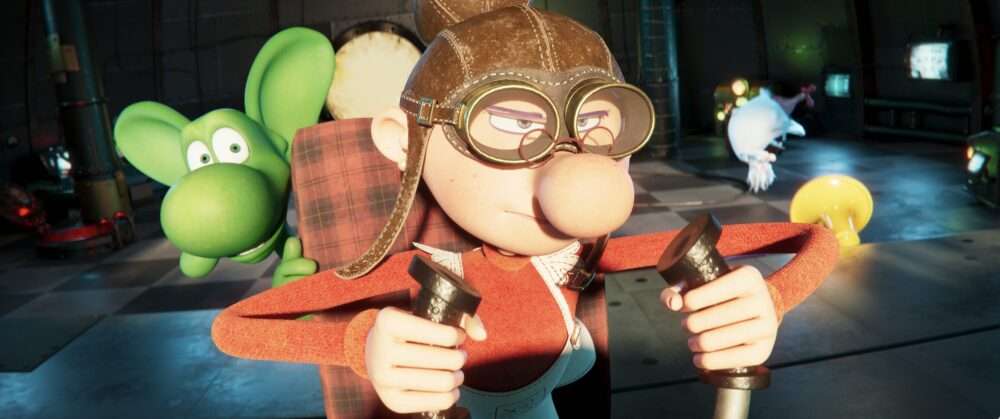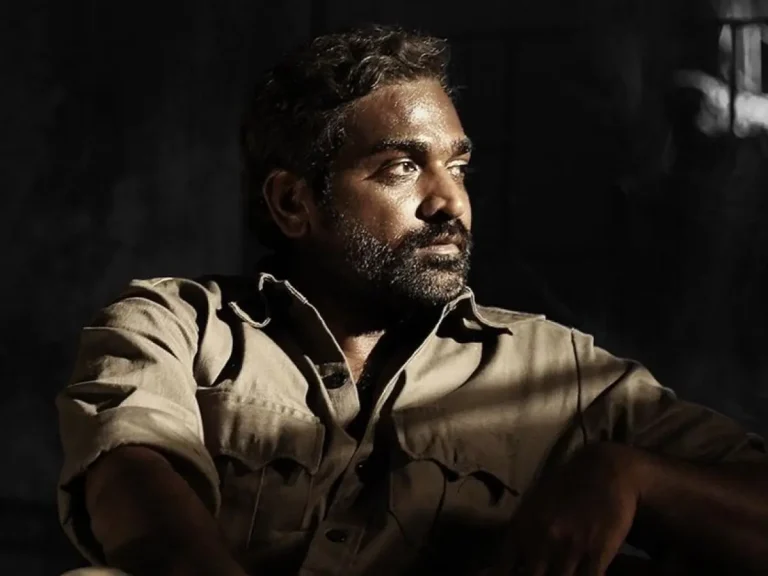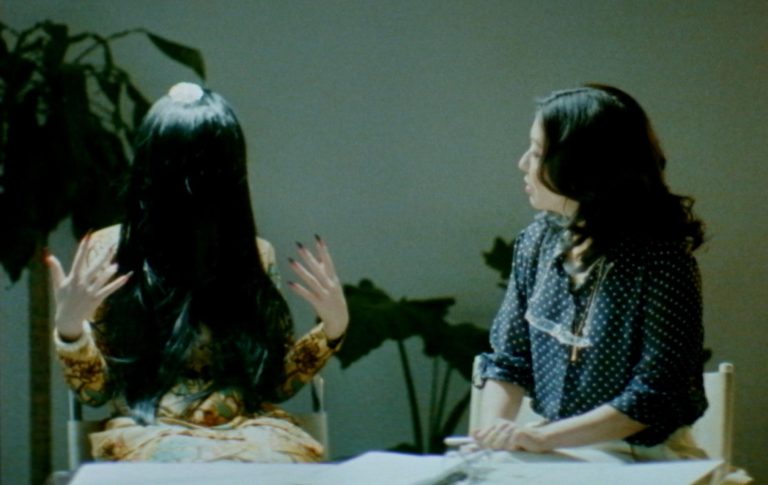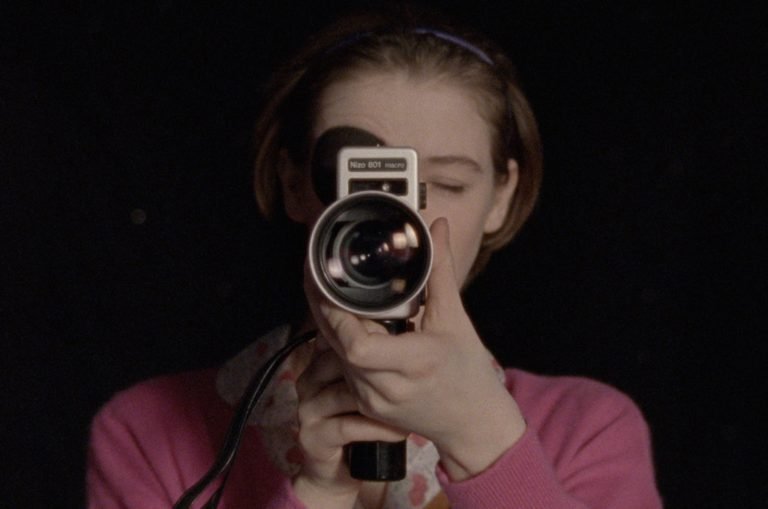Wojtek Wawszczyk’s hybrid animated feature, “Diplodocus,” is resplendent with charm, innocence, and a spirited sense of adventure. Switching between a beleaguered artist, Ted, and the worlds of his comic books that haven’t been commissioned, the film blurs boundaries between the creator and his/her creation. The story may not be super-fresh but the journey that unfolds stays eminently, pleasingly watchable. For most of the film, we watch an anguished Ted fretting over an illustration an agent pushes him to make. All the agent wants is for him to come up with a ‘cute kitten’ cartoon. She even has a model for him as a reference.
However, despite his efforts, he cannot quite set his heart on it. He’s more drawn to a particular comic having a young dinosaur as a protagonist. He has especially been invested in this since his childhood. We are planted inside this world, which segues to full-fledged animation as opposed to the fleeting real-world sections of Ted. The young dinosaur, Diplodocus, is seething with teen angst. He is exhausted and annoyed with his sheltered existence.
There’s no circle of real friends he can claim to fall back on. His parents and other elders in the vicinity have created a bubble for themselves and are reluctant to step out of it. When Diplodocus registers his fervent hunger for adventure and boundless exploration, his parents immediately advise him against it. They rail about the perils and the uncertainties of the unknown, wide world that lies beyond the boundary of their cocoon-like community. But he is restless and yearning to break out and venture into the wild. He is curious about what the world has to offer beyond the confines of his home, and that fuels his anger against his parents for curtailing and limiting him.
However, chaos of a different sort ensues when a strange fog starts enveloping them, sucking everything into it. The young dinosaur is surrounded by his world, rapidly crashing and wholly melting away. His parents become its casualties. Before she is taken too, his mother exhorts him to flee as far away as he can and protect himself. The fog is affected by Ted’s agonized erasing of his sketches. He feels only if he can wipe it out can he imagine something different that will be inclined favorably to the demands of the agent. Trying to escape from the fog, Diplodocus stumbles into other worlds where he meets allies and partners in his quest to be reunited with his disappeared parents. He encounters a magician, Hocus Pocus, and a scientist who’s particularly overenthusiastic in demonstrating his knowledge. The scientist’s rocket serves as a vehicle.

The film bursts into a rollicking series of journeys full of high gambles; in the characters’ search for answers and explanations, myriad worlds crack open. We are hurled into one of the many worlds of the artist’s stories with the same abrupt swiftness with which we are ejected from one and put into the next. Therefore, while sustained exploration may not be a possibility, the emotional throughline of the characters keeps us hooked and desiring to know the next episode in their travels.
Some of it is undeniably rushed, and the plotting gets too convenient at times. It can be a bit off-putting and distancing when characters manage to extricate themselves from pretty mucky situations by virtue of a special, mysterious gift that has the power of deus ex machina. This becomes troublesome and vested with the potential to dent the emotional appeal of characters trapped in grueling, tough circumstances when the viewer already has the knowledge the danger may not turn properly annihilating. Thankfully, this liability in terms of the narrative isn’t allowed mainstay, as our attention is helpfully diverted gradually.
The zippy energy of the voice-acting and the exuberant, color-popping visuals tide over the soft spots in the screenplay. I loved the sore, glaring, glittery brightness of the pink kitty when she finally appeared. While “Diplodocus” mostly coasts on safe, harmless intentions, it is a welcome change when some moral murkiness creeps into a character and lends a believable, jarring thrust into the proceedings. Albeit the climax borders on the pandemonium-stuffed, generically epic gestures and the epilogue stiff, Wojtek Wawszczyk’s “Diplodocus” is seasoned with abundant delight to deflect any wavering interest in it.







![Thunderheart [1992] Review – A Rare Perceptive Hollywood flick on the Native Americans](https://79468c92.delivery.rocketcdn.me/wp-content/uploads/2020/12/Thunderheart-1992-768x576.jpg)